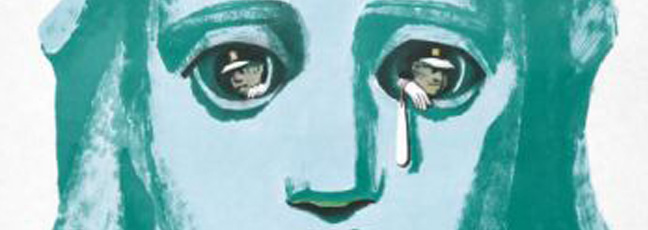
February 23, 2015, by Steve Stapleton
Propaganda and Ideology in Everyday Life
‘Propaganda and Ideology in Everyday Life’, will combine the latest academic insights from experts at The University of Nottingham with the treasure trove of the British Library’s political collections and expertise. Featuring maps, political pamphlets, posters, cartoons and many more unique items, the course will draw on material showcased in the British Library’s 2013 exhibition, Propaganda: Power and Persuasion.
The course is the latest MOOC (Massive Open Online Course) to be offered by the University through FutureLearn – an online platform offering free course content from the UK’s top universities. It is also the first MOOC created using the British Library’s collections.
Professor Mathew Humphrey from the School of Politics and International Relations at the University is a lead educator on the course. He said: “Together, during the course, the team will help learners explore the building blocks of modern politics: freedom, community, place, justice, choice.”
Maiken Umbach, Professor of Modern History at Nottingham is also a lead educator on the course, she said: “We ask how such words come to mean such different things to different people, to the extent that individuals, protest movements and entire states are sometimes prepared to go to war to assert their understanding of a political ideal over somebody else’s.”
Sharing political beliefs
The course will put learners centre stage, encouraging them to share their political beliefs and their encounters with ideology with other participants, and to reflect on them in the light of the experience of others. Learners will have the opportunity to post images to an online archive, helping to show us what freedom, or community, or protest might mean to them. The course will then respond to these materials, and compare them to the official propaganda that states, past and present, have produced.
In this way the course will instigate a global conversation, where people talk politics across national, social and religious dividing lines, helping us all to appreciate where our differences of views originate.
Ian Cooke, Curator of International and Political Studies at the British Library and one of the lead educators said: “The subject of propaganda has a potent ability to capture the imagination and to provoke debate and discussion, as evidenced by the success of our 2013 exhibition, Propaganda: Power and Persuasion.
“We’re thrilled to share the British Library’s collections in a new, innovative way as we launch our first ever online course, in partnership with The University of Nottingham and FutureLearn.
“Working with Mathew Humphrey and Maiken Umbach at The University of Nottingham has brought new insights to the interpretation of the materials we use in this course, and I look forward to finding out how our learners on this course will add to that understanding, and what new examples they will bring to the discussion.”
The course starts on 11 May 2015. To find out more or to register to take part, visit www.futurelearn.com/courses/propaganda.
You can also watch the trailer for the course:
No comments yet, fill out a comment to be the first

Leave a Reply